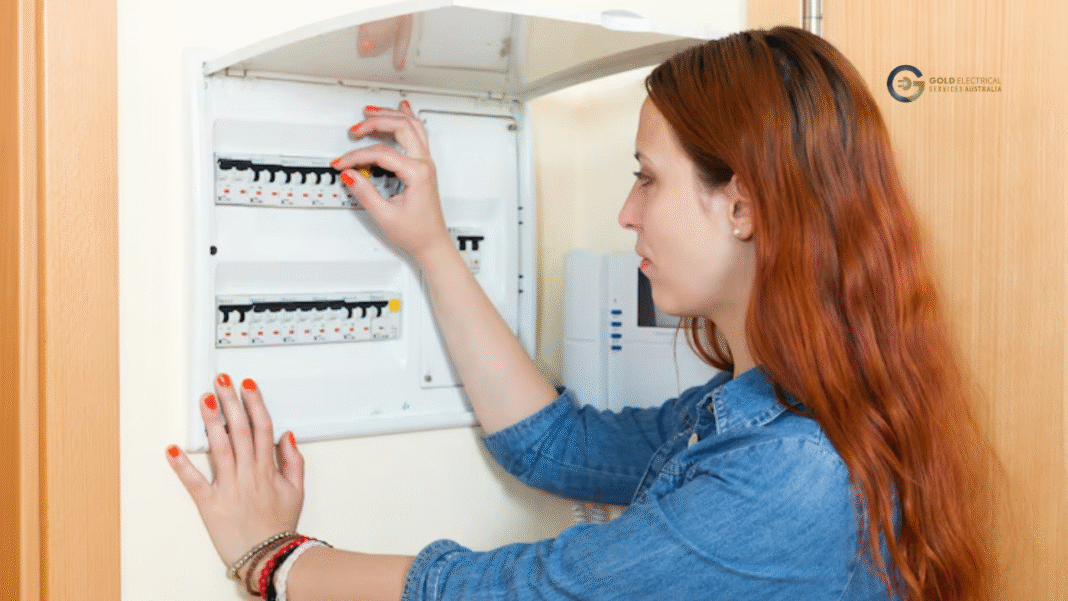A short circuit is one of the most common and dangerous electrical issues that can occur in any home. Not only can it damage your appliances and wiring, but it can also pose serious fire risks and endanger your family’s safety. Understanding how short circuits happen and taking proactive steps to prevent them is essential for every homeowner. Here is a comprehensive guide to help you keep your home safe from short circuits. Discover how an electrician in Castle Hill can help you.
What is a Short Circuit?
A short circuit happens when electrical current takes an uncharted path with little or no resistance, usually bypassing the normal load. This sudden surge of electricity can cause overheating, sparks, and even fires. Short circuits typically occur when:
- Wires are damaged or exposed
- Insulation is worn out
- Electrical connections are loose
- Appliances are faulty or overloaded
Common Causes of Short Circuits at Home
Understanding the exact causes is the first step to prevention. Some of the most frequent culprits include:
- Damaged or Frayed Wiring: Over time, wires can become worn or chewed by pests, exposing the conductive core.
- Faulty Appliances: Old or poorly maintained appliances can develop internal faults that lead to short circuits.
- Overloaded Circuits: Plugging lots of devices into a single outlet or power board can overload the circuit.
- Loose Connections: Outlets, switches, or light fittings with loose wires can cause arcing and shorts.
- Water Exposure: Moisture in areas like kitchens, bathrooms, or outdoor sockets can cause electrical faults.
Practical Steps to Prevent Short Circuits
1. Regular Electrical Inspections
Schedule routine inspections by an electrician to check the condition of your home’s wiring, outlets, and switchboards. An expert finds early signs of wear or tear that might not be visible to the untrained eye.
2. Replace Damaged Wires and Outlets
If you notice any frayed wires, cracked outlets, or burn marks around sockets, have them replaced immediately. Damaged components are a leading cause of shorts and should never be ignored.
3. Do Not Overload Power Points
Avoid plugging too many devices into a single outlet or extension cord. Spread out your appliances and use power boards with built-in overload protection to reduce the risk.
4. Use Quality Appliances
Always use appliances that meet Australian safety standards. Cheap or counterfeit electronics may have poor insulation or faulty wiring, increasing the risk of short circuits.
5. Keep Water Away from Electrical Points
Ensure that electrical outlets and switches in wet areas are properly sealed and protected. Install safety switches (RCDs) and use weatherproof covers for outdoor sockets.
6. Secure Loose Connections
Loose wires in outlets, switches, or light fittings can cause arcing and eventually lead to short circuits. If you notice flickering lights or intermittent power, have an Electrician in Castle Hill inspect and secure all connections.
7. Upgrade Old Switchboards
Older switchboards may not be equipped to handle modern electrical loads or provide adequate protection. Upgrading to a new switchboard with circuit breakers and RCDs can greatly enhance safety of your home.
8. Educate Your Family
Teach everyone in your household about basic electrical safety. Make sure children know not to insert objects into outlets and to keep liquids away from electrical devices.
Signs of a Potential Short Circuit
Be alert for warning signs that may indicate a developing short circuit:
- Frequent tripping of circuit breakers or blown fuses
- Burning smell near outlets or switches
- Sparks or buzzing sounds from sockets
- Flickering or dimming lights
- Discoloured or warm outlets
If you notice any of these issues, turn off the power to the affected area and contact a professional electrician immediately.
What To Do If You Suspect a Short Circuit
- Turn Off Power: Switch off the main power supply to prevent further damage or risk of fire.
- Unplug Devices: Remove all appliances from the affected circuit.
- Call a Licensed Electrician: Never attempt to fix electrical faults yourself. A qualified professional can safely diagnose and repair the problem.
Why Professional Help Matters
DIY electrical repairs are not only dangerous but also illegal in Australia unless you are a licensed electrician. Professional electricians in Castle Hill have the expertise and tools to identify hidden faults, ensure all repairs meet safety standards, and provide peace of mind for your family.
Trust Gold Electrical Services for Your Home’s Safety
Preventing short circuits is all about vigilance, regular maintenance, and knowing when to call in the experts. The Gold Electrical Services team’s licensed electricians are dedicated to keeping homes in Castle Hill and across Sydney safe and efficient. Whether you need a safety inspection, switchboard upgrade, or emergency repairs, they are here to help with prompt, reliable service and expert advice.
Do not wait for a short circuit to put your home at risk. Contact Gold Electrical Services today and ensure your electrical system is safe, modern, and built to last. Our expert team provides reliable inspections, upgrades, and repairs to keep your home protected and up to code.







